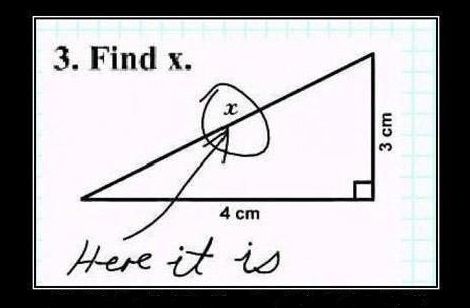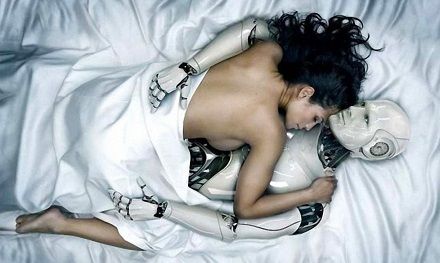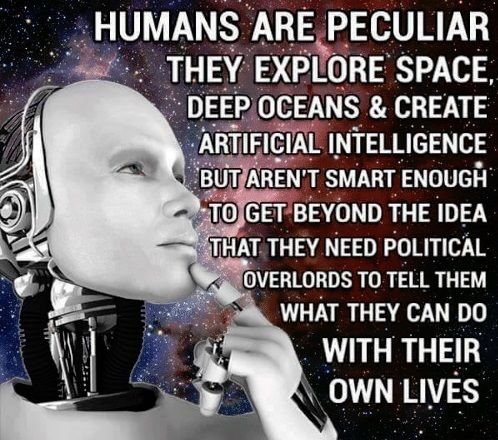I am not a believer in AI as I think that this word is more in synchrony with religions and topics that address related matters. Now, I do think that because there are some very smart people, they have been able to start a development in technology that will in a few years help in all endeavors of life, from medicine, space flight, DNA correction, and perhaps all the way to help the 16-year-old girls to select the best date for the prom.

And this is very important; so, world experts convened by the UN highlight the importance of this technology to close social gaps, reduce poverty, improve medical care and prevent child malnutrition.
A bit of history: on May 3, 1997 began the most exciting game of chess in history. Gary Kasparov, a world champion from 1985 to 2001, was pitted against Deep Blue, IBM's supercomputer capable of calculating 200 million positions and movements per second. Of the six games, Deep Blue won three, Kasparov two and one finished in a draw. The world was amazed. After many years of failed attempts, an apparatus had finally been able to bend the mind of one of the brightest men of the century. The distant legend of science fiction, in which the human being created a machine capable of overcoming him, was already a reality.

The key to victory was in the computer's ability to "think" for itself. Although in principle it seems impossible, nodes, microprocessors and algorithms, developed by a premium team of IBM engineers, made the machine learn from its mistakes, solve problems in real time and, most difficult, predict the movements of its opponent. Deep Blue successfully simulated human reasoning in chess and became a key referent for the development of artificial intelligence (AI) in the world.
Today, 20 years after the epic battle, the transformations and advances in this technology are even more surprising. However, the AI debate no longer focuses on the fact of its own existence and possibilities, but on its use. The scope of machine learning, neural networks, and cognitive computing, as well as transforming almost all fields of life into society, can wipe out jobs and entire industries.

The McKinsey Global Institute estimates that "about half of the activities for which people are paid today can potentially be automated. This means a number approximately at the $16T in wages level." Not for nothing, almost all big names in technology, including Google, Facebook, IBM and Microsoft have vast artificial intelligence projects and it is estimated that investment in this sector tripled this year and is estimated to be $ 37 billion for 2025.
That is why the United Nations (UN) held the World Summit on Artificial Intelligence for the Good of Mankind. The meeting, which ended Friday, June 9, 2017, in Geneva, Switzerland, was attended by scientists, business people and politicians such as Margaret Chan, director of the World Health Organization; Peter Norvig, director of research at Google and Peter Lee, corporate vice president of Microsoft.
The conference aimed to identify the different ways in which AI could help achieve the Sustainable Development Goals and goals for improving the lives of the world's poorest people by 2030.
The summit addressed global challenges such as poverty, hunger, health, education and the environment and seeks to democratize AI solutions around the world.
The conclusions of the meeting are aligned with those of an open letter published in 2015, which was signed by more than 8,000 scientists, including Stephen Hawking and Tom Dietterich, president of the Association for the Advancement of AI, which insists that the possibilities of this technology can help close social gaps: "Progress in these researches should aim not only to develop more technological capabilities, but to maximize the social benefits of AI."

One of the most interesting initiatives proposed at the summit is to use AI to more accurately measure and evaluate the living conditions of the 3 billion people still living in poverty, and to develop public policies to this end. Marshall Burke, an economist at Stanford University, believes that at this time there are algorithms using nighttime satellite imagery - in which well-lit areas are a benchmark of wealth - to know what features of daytime satellite imagery, such as roads or types of roofs, correlate with the wealth or poverty of a community. "A pilot study in five African nations showed that the artificial intelligence system accurately predicts the living conditions of the neediest populations," the expert said.
On the other hand, a group of US scientists are using remote sensing and satellite data to predict exact yields of crops, months before harvesting. If replicated on a large scale, this tool would distribute food throughout the year and avoid, or at least anticipate, food shortages.
The study of Artificial Intelligence and Life in 2030, published by the University of Texas, Allen Institute for Artificial Intelligence, Microsoft and Harvard academics, MIT, Columbia, UC Berkeley, confirms the possibilities for inclusive and sustainable development that would enable IA. "These advances in technology can make the economic development of low-income communities more efficient. Data mining could help to better allocate public resources. The algorithms could connect restaurants to food banks and avoid wasting food. "
Artificial intelligence has also transformed classical medicine. During the summit, UNICEF outlined the work it has been developing to demonstrate that deep learning and neural networks can diagnose malnutrition from photographs and videos of children.
UN Secretary-General António Guterres closed the conference, adding: "Artificial intelligence can help analyze a huge amount of data which, in turn, can help improve predictions, prevent crime and collaborate with governments to serve Better to people ".

Third world countries like Colombia in South America report articles that address the matter. "1DOC3 is a digital platform in which anyone can consult health issues, free of charge and anonymous, and a certified medical team responds immediately," says the company CIO. The company, founded in 2014, answers 1.2 million questions per month, has 600,000 active users throughout Latin America and has a database of answers to 100,000 unique questions. All this information, processed through natural language, an area of artificial intelligence, has enabled them to detect when a person needs to go to the doctor and even predict a catastrophic event, such as a diabetic coma or a heart attack. "The questions are telling the story of the users and then a respond is classified information together with symptoms, specialty, level of urgency and risk, that helps us build a giant knowledge base.”
At a global level and in addition to these types of applications, companies have developed intelligent systems on topics such as facial recognition in public places or customer service through online tools.
Some services offer customer service through the use of virtual assistants, known as bots: the user normally chats, as he would with a person, and his requests are attended by a computer that, using natural language processing techniques, manages to establish conversations with a level of fluency much more advanced than the one registered two or three years ago.
There are also projects that seek, through the analysis of large amounts of data and the use of artificial intelligence, to be able to predict which users of a health system are likely to develop diabetes, for example, to treat them preventively. Although at this point there is also a debate about the possibility of discriminating against people who, by the opinion of a machine, can develop a certain condition.

References:
https://www.nature.com/
https://www.theguardian.com
https://techcrunch.com/
http://www.sciencemag.org/
Did this article shake your brain and warm your mind? Great, please then UPVOTE and in addition, if it was such a nice one, i.e. above average, then go ahead and RESTEEM don't be shy.
I hope the humans build better computers, some that my butt can fit more precisely and I can sit in for the warm.
I believe AI capable of thinking by themselves are impossible, because religion beliefs. But I don't think they only can do harm if they have conscience, their indiscriminate use could damage some human institutions such the labor sector.Downvoting a post can decrease pending rewards and make it less visible. Common reasons:
Submit
Very interesting ! It seems you have done a lot of research. Welldone!
Downvoting a post can decrease pending rewards and make it less visible. Common reasons:
Submit
yes I have many thanks to you.....rgds.
Downvoting a post can decrease pending rewards and make it less visible. Common reasons:
Submit
Nicely written. haha. AI is sorta scary to think about.
Downvoting a post can decrease pending rewards and make it less visible. Common reasons:
Submit
nice article
Downvoting a post can decrease pending rewards and make it less visible. Common reasons:
Submit
It's only getting stranger. I dread to think of the consequences of this. So much for "in the future". I enjoyed this
Downvoting a post can decrease pending rewards and make it less visible. Common reasons:
Submit
AI is advancing very fast. My biggest fear of AI is AI taking humans' jobs.
Downvoting a post can decrease pending rewards and make it less visible. Common reasons:
Submit